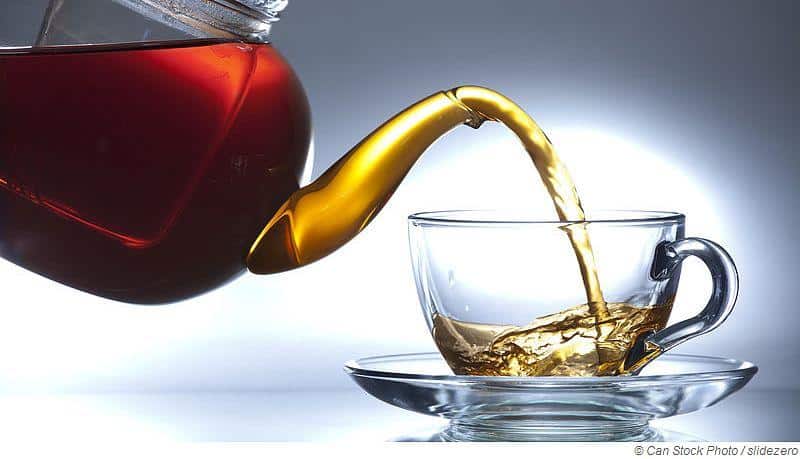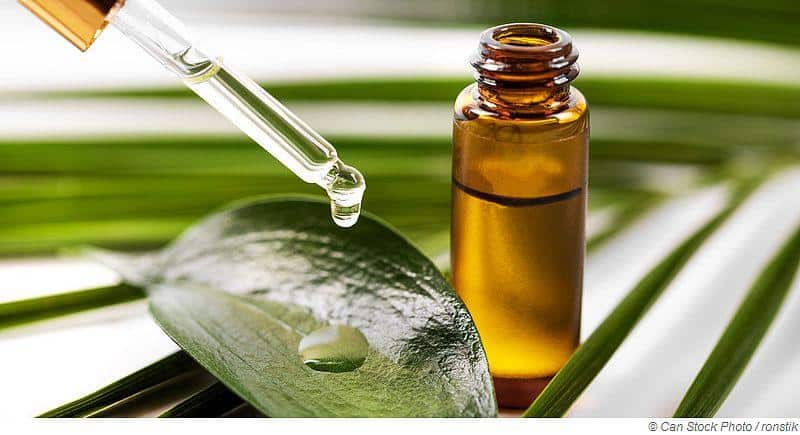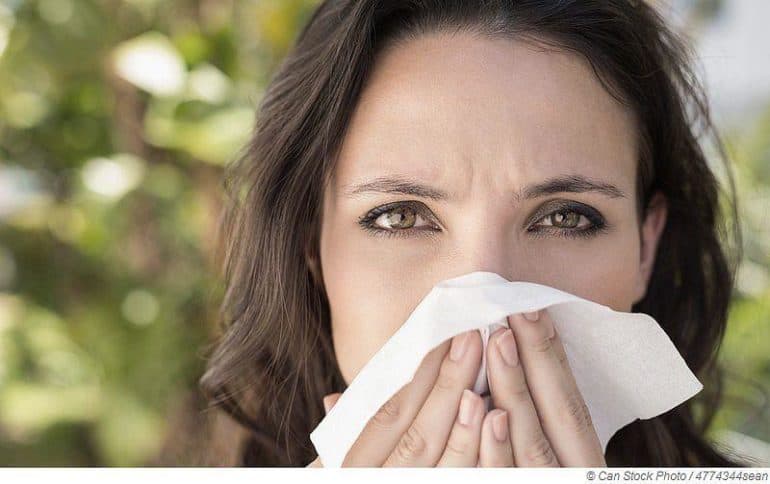Is a visit to the sauna recommended with a cold?
With a cold in the sauna? Not only in winter is cold season, even in summer you can succumb to it, but the sauna still beckons. And in principle, you can indulge in your hobby without hesitation – as long as you only have a cold. Then, especially the steam bath has many advantages. But if your head and limbs also hurt, you should wait until you feel better. We’ll tell you why – and how best to cure your sniffles in the heat.
I can sweat out my cold after all
Your nose is dripping, you’re coughing, your head and limbs ache? Clear case, you have a cold. But there is wisdom that you can also sweat out the disease. Unfortunately, this is just a myth from your grandma. The time spent in the comforting warmth can actually harm you in this case. Because your body is battered and thus your circulation no longer works as it should. The high temperature would only stress you out.
Also, you would not feel better after sweating. In the worst case scenario, your health will actually worsen. Especially if you have a fever, you should avoid the sauna for a few days. However, there is no need to be afraid that viruses and bacteria will settle on the wood. In the sauna, the temperature is so high that they would be killed.
The healing power of humidity in the air
But if it’s just a cold, there’s nothing to stop you from visiting the sauna facility. Quite the opposite. You should take a trip to the steam room, though. The humid air cleans your airways, or rather the fine hairs on your bronchial tubes. They are quite useful for your body, but viruses and bacteria can also settle here.
Now, when you breathe in the moist air, they are purified. In this way, you may even prevent a cold from breaking out. Especially since you also strengthen your immune system in the comforting warmth. Because your body produces antibodies that will successfully fight against the pathogens.
One more tip on the side: if you’re suffering from the sniffles, be on the lookout for a menthol-scented steam bath. This will further ease your discomfort.
Caution during cooling
Even if it’s just a cold, your body is still banged up. That’s why you should refrain from cooling off in the ice-cold shower. This would stress your organism – and perhaps only make things worse. So better take a lukewarm shower and rest for a while. You’ll beat that nasty cold in no time.
In short, you can go to the sauna with a cold. However, if you have a cold, you should pass on this experience.
14 Home remedies for cold
You feel listless, your nose is running, and it’s hard to breathe – a cold is on its way. Antibiotics usually do not help against it, because a cold is caused by viruses. The body has to cope with it itself. However, we can support our body’s healing powers with simple home remedies. Some proven home remedies for colds we present here briefly.
1. Nasal rinses – flushing viruses and colds from the nose.
A nasal douche is best suited for nasal rinsing. However, nasal rinses can also be performed with the cupped hand. Stir 9 grams of table salt into 1 liter of warm water and wait for it to dissolve. Chamomile tea is also suitable. Tilting the head over a sink. Then fill or aspirate the saline solution into one nostril and let it run out of the second. Then change the page. This moistens the nasal mucous membranes and boosts the healing process.
2. Inhalation with salt water and chamomile.
Inhaling is a benefit for our mucous membranes and clears the nose. The hot, humid air causes the nasal mucosa to swell and you can breathe better. Mucus is dissolved. The warm vapors make breathing easier. Those who do not have an inhaler at home can resort to a saucepan or bowl.
Fill this with hot water and add the desired inhalation supplements. This can be chamomile flowers or chamomile tea, but it can also be common salt or you stir a few drops of essential oils into the water. Infuse for a few minutes and then leave to cool slightly. With a towel over your head, bend over it and slowly inhale and exhale.
3. Drink a lot of water when you have a cold
Drinking enough water throughout the day is generally advisable. Why is it so important to drink enough, especially when you have a cold? Because it helps to stabilize the circulation and because it supports healing. Most people already need at least one and a half liters per day by nature. A cold is often accompanied by an elevated body temperature.
Then you sweat more, and the lost fluid must be replenished. In addition, in winter, the humidity in closed rooms is generally lower and this is poison for the mucous membranes. Drinking counteracts this.
4. Drink a cold tea

Teas are the home remedy par excellence for colds. Drink the tea in sips to keep the mucous membranes moist. The essential oils in the steam clear the nose. The choice of cold teas is almost limitless. At the same time, as long as it is herbal tea, the type of tea is largely a matter of personal taste.
Many swear by the following teas: fennel tea – has an expectorant and soothing effect on the upper respiratory tract, as well as a cough. If you don’t like to drink it, you can just gargle with it, that helps too. Ginger tea – strengthens the immune system. Linden blossom tea – promotes sweating. The increased body temperature allows the body to fight the viruses better. In the pharmacy you can also get special cold tea blends.
5. Take a hot bath with bath additive

Hot baths before bedtime are especially pleasant when you have a cold. The water temperature should be between 25 and 37 degrees Celsius. Higher temperatures put too much strain on the circulatory system. As a bath additive are suitable herbs: spruce needle, sage, chamomile, verbena, rosemary, thyme, marjoram, menthol, eucalyptus, or lavender. Whether you use ready-made bath additives or those you mix yourself is up to you.
6. Foot bath is very good for colds
Rising foot baths are a proven home remedy for colds and a special boon for cold feet. You can do it in a foot tub or in the bathtub. Fill the vessel to the middle of the lower legs with water at 33–35 degrees. Then gradually add hot water, to a maximum of 40–42 degrees. You can either put the decoction of herbs (for example, thyme), or fragrant essential oils such as thyme oil or lavender oil.
7. Sufficient rest and sleep helps with colds and flus

Even with a seemingly harmless cold, we need sufficient rest and sleep. This is so important that it cannot be emphasized strongly enough. Fatigue and listlessness are signs that your body needs to recover. He must devote his complete energy to the healing process. Support him in this and give your body the rest it needs. This is how you strengthen your self-healing powers. A tip: Position the upper body somewhat high, for example, by placing pillows underneath. Then the nose remains free and you can breathe easier.
8. Hot lemon drives away the common cold
A cold means stress for the body, and vitamin C helps against stress. Lemons contain a lot of vitamin C and are therefore a good choice for a cold. With the time-honored “hot lemon” you can ideally support your immune system. Simply pour a little lemon juice with warm water. Mind you, warm or even lukewarm. Too hot water destroys the heat-sensitive vitamin C. If you like, you can sweeten with a little honey.
9. Humidify the room air and avoid dry mucous membranes.
Our mucous membranes love humid indoor air, preferably above 50 percent humidity. In the heating season, the air in closed rooms is usually very dry. The problem: when the air is dry, we are more susceptible to viruses and bacteria. The solution: hang a few damp cloths in the room or put a bowl of water on the radiator. This increases the humidity of the air. Your mucous membranes will thank you.
10. Essential oils – aromatherapy helps with colds

Aroma treatment with essential oils can help with the common cold. Typical oils for colds include peppermint oil, eucalyptus oil, thyme oil, lavender oil, rosemary oil and tea tree oil. Mixtures of eucalyptus oil and peppermint oil or other oils are also possible. Put a few drops at a time in a fragrance lamp. Or simply put it on a handkerchief and inhale (tip for on the go!).
11. Red light lamp against cold and sniffles
Irradiation with ultra-red light strengthens the body’s defenses and reduces inflammation of the nasal mucosa. Mucus dissolves and a pleasant feeling of relaxation sets in. Irradiate the face (especially the forehead and sinus area) in the morning and evening for about 20 minutes at a distance of 30-50 cm. Close your eyes or wear protective goggles.
12. Steam bath – a proven home remedy
A steam bath is a benefit for the mucous membranes. Especially at the first signs of a cold or when it is already subsiding. In the steam bath, there is 100 percent humidity at about 45-50 degrees Celsius. Often essential oils are added. Then it’s deep inhalation and exhalation, just like inhalation at home. Stay in the steam room for as long as is comfortable for you, but no more than 15 minutes at a time.
13. Mustard oil against viruses and bacteria
Mustard oil is found in nasturtium, horseradish, broccoli, rapeseed and, of course, mustard and is excellent against viruses and bacteria. Therefore, it is considered a herbal antibiotic. It is well tolerated and can be used for a longer period of time. Thus, mustard oil is ideal especially for children. Also for prevention.
14. Warm compress and wrap
Compresses are applications to the neck, nape of the neck or chest. They are beneficial for a cold and have an expectorant effect. For a warm compress, you will need a warm, damp cotton cloth – a tea towel or flannel diaper – and a second woolen cloth placed on top. Please do not use cloths made of synthetic materials.
You can coat the cotton cloth with a winding solution. Choices include thyme, flaxseed, onions, mashed potatoes, cottage cheese and many others. Lie down in bed with the warm compress and cover yourself. You can also leave the compress on overnight if that is comfortable for you.
Conclusion of the editors
The following applies to all home remedies: It is best to use them at the first signs of a cold. Then the cold viruses are nipped in the bud. Ideally, you can still avert the worst cold in this way and boost recovery. But be careful, home remedies are only advised for mild symptoms. If you have a high fever or your symptoms otherwise worsen, be sure to consult a doctor.

